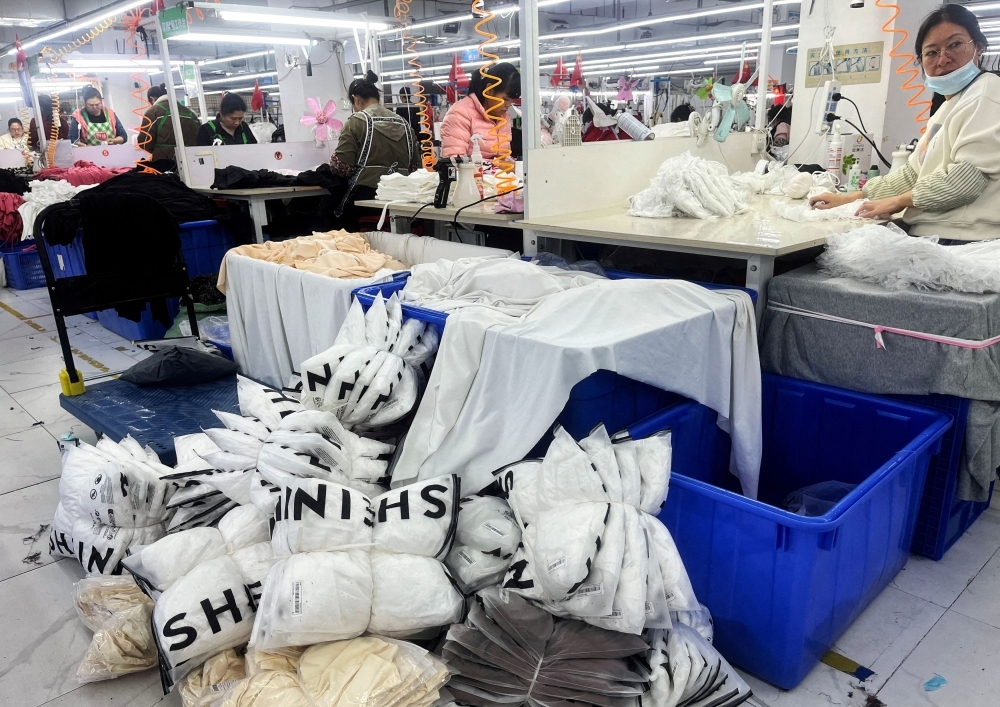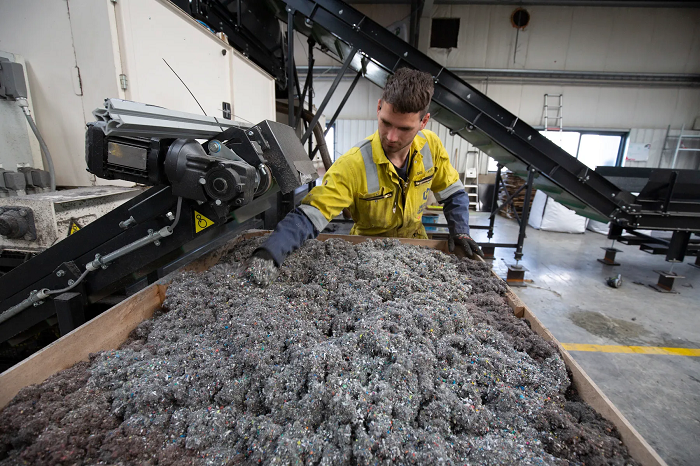FW
British shoe brand Clarks is planning to permanently close some of its stores as the footwear retailer has struggled to deliver a turnaround plan and has consequently made the decision not to reopen a small number of its 347 UK store estate once the government-mandated lockdown ends.
Clarks had appointed investment bank Rothschild to manage the business financing options, as well as access new borrowing facilities. The retailer has furloughed thousands of its store staff under the government’s Coronavirus Job Retention Scheme, and is currently assessing options for the remainder of its workforce.
Clarks has been working with the management consultant McKinsey on a new corporate blueprint. However, the footwear retailer is now prioritising how best to survive during the pandemic. It is reviewing all stores to ensure that they are the right size and located in the right areas. As a part of this review, he retailer decided not to renew the leases on a small number of stores.
The International Textile Manufacturers Association (ITMF) has conducted a second survey of members and affiliated companies and associations, about the impact the COVID-19 pandemic on the global textile value chain, especially on current orders and expected turnover in 2020. In total 700 companies from around the world participated between March 28 and 6 April 2020.
The results show that companies in all regions of the world suffered significant numbers of cancellations and/or postponements of orders. Globally, current orders dropped 31 per cent on average. The severity of the decrease ranges from 20.0 per cent in East Asia to 41 per cent in South America.
The results show that companies in all regions of the world are expecting their turnovers in 2020 to be significantly lower than in 2019. On average worldwide, turnover in 2020 is expected to be 28 per cent lower than in 2019. While in South Asia the expected turnover will fall by 15 per cent, companies in Africa are expecting a drop of 45 per cent.”
According to the ITMF, companies around the world have highlighted the challenges like lack of current demand and/or fear that future demand will drop significantly and lack of liquidity.
R K Rewari, Managing Director, Morarjee Textiles
 “It is wait and watch strategy as we have been informed by customers due to the pandemic all orders are on hold. We can prepare ourselves for future challenges of low demand. Low demand means markings are also low and competitiveness is higher in the market this puts pressure on us to go back to basics to see our cost structure, ways of doing business etc. Many things might change. One is low demand, and the other is new rules of conducting business, most of which will be through video conferencing etc. It looks like there could be a systematic change in overall structure. We are preparing ourselves by keeping our morale high, think positive and identifying the gaps that need to be filled to enable us to meet the challenge of demand whether it is low or high.”
“It is wait and watch strategy as we have been informed by customers due to the pandemic all orders are on hold. We can prepare ourselves for future challenges of low demand. Low demand means markings are also low and competitiveness is higher in the market this puts pressure on us to go back to basics to see our cost structure, ways of doing business etc. Many things might change. One is low demand, and the other is new rules of conducting business, most of which will be through video conferencing etc. It looks like there could be a systematic change in overall structure. We are preparing ourselves by keeping our morale high, think positive and identifying the gaps that need to be filled to enable us to meet the challenge of demand whether it is low or high.”
With a lockdown, what is the current status of India’s garment and textile industry?
COVID-19 is one of the deadliest disruptions in decades. However, how much it will affect and for how long is difficult to gauge. Indeed it is a serious disruption and will affect most businesses including the textile industry adversely.
Does India have the capability to fill China’s space as a sourcing destination?
If China loses the confidence of consumers and big retailers only then will India be able to fill its space. However, their cost structure and prices are so attractive and they are efficient product producers. So, unless we match their productivity level and speed it will be difficult for us to get any space from China. Other countries like Vietnam, Cambodia even Bangladesh, are far above us in productivity levels for apparels which is the ultimate engine of our exports. In a market place your position is not granted by just the availability of space. Your space is granted by the competitiveness of your production ability. So, while this is an opportunity for India to grab more market share; it is a greater opportunity for us as a country to enhance our productivity levels, train ourselves more and get into this with a winning streak. Only, then it will be possible, else it will be like the old quota system where business comes as quota as we have never concentrated on technological development, production development etc.
The retail industry will also face a big hit because of the lockdown. Future sale of apparels will largely depend on the sentiment that prevails after COVID-19 is eliminated or some kind of vaccine is invented. Till then, we all will be in a troubled zone, as we are an industry that has high fixed costs and margins are low. So, if we cannot handle fixed costs then there is no revenue generation. Therefore, most industries will be on the path to sickness.
What steps has Morarjee Textile taken to overcome the challenging times?
It is wait and watch strategy as we have been informed by customers due to the pandemic all orders are on hold. We can prepare ourselves for future challenges of low demand. Low demand means markings are also low and competitiveness is higher in the market this puts pressure on us to go back to basics to see our cost structure, ways of doing business etc. Many things might change. One is low demand, and the other is new rules of conducting business, most of which will be through video conferencing etcc. We are preparing ourselves by keeping our morale high, think positive and identifying the gaps that need to be filled to enable us to meet the challenge of demand whether it is low or high.
Spring/Summer seems to be goner; how do you foresee Autumn/Winter?
Autumn/Winter season is not so big in India because we are largely cotton or cotton-polyester based. Our country’s textile production mix is not too suited to meet the demand of winter season. Hence, jacket, suits and woolen goods manufacturing capacities are not as good as far as exports are concerned. In domestic market, we will have to see how big retailers like Reliance, Madura Garments, Pantaloons, Max and Future come out of this situation. Roughly, their overall sales may be down 20 per cent, even if things become normal in a month or so. We have to be hopeful and positive for the Autumn/Winter season. I feel there will be less travel, less interaction in the next six months. Most retailers will like to clear their inventories and there will still be big demand supply gap. Demand is not going to be high as per supplies.
Indian government has been given some incentives. Do you feel the government done enough for the textile industry during this challenging time? What are your expectations?
The government’s top priority is to save people and they have not looked very seriously at the economic aspect of it. Whatever is available with them, they are doing it for everyone. At this moment I don’t think the Central or State government has taken any sectorial view, specifically for the textile industry. They are just in the process of giving general relief like, a shift in the time line or installments etc, they are positive measures, as they will help us breed well and think for the future. However, so far I don’t think there has been any specific incentive or relief for textile industry. Our associations are engaging with the ministry on this but it appears to me that for a couple of weeks the government will be watching and gauging seriously how to fight COVID-19 and looking at relief. Also, they have given first priority to the have nots, the daily wage earners etc, and are trying to look after them and with the progressive political leaders we have at this moment. I hope they will soon look at different segments with more relief packages. I think it is a matter of time.
 Times are tough as textile and apparel companies across the world are being forced to swim against the tide. As a recent blog co-published by the Business & Human Rights Resource Centre and the Harvard Kennedy School- Corporate Responsibility Initiative, notes the onset of COVID-19 is forcing companies to walk on a sword’s edge. Neither can they let go of their business interests nor can they declare moral bankruptcy by triggering force majeure clauses to halt payments to suppliers with vulnerable workers, including for orders already processed.
Times are tough as textile and apparel companies across the world are being forced to swim against the tide. As a recent blog co-published by the Business & Human Rights Resource Centre and the Harvard Kennedy School- Corporate Responsibility Initiative, notes the onset of COVID-19 is forcing companies to walk on a sword’s edge. Neither can they let go of their business interests nor can they declare moral bankruptcy by triggering force majeure clauses to halt payments to suppliers with vulnerable workers, including for orders already processed.
The post-pandemic world is likely to judge companies by how humanely they handle this crisis. This will include how they treat their direct employees besides what steps they take to mitigate the impact on the most vulnerable workers in their value chain.
Ensuring a safety net for suppliers
To tide over these testing times, companies should consider the ability of their suppliers to survive a force majeure provision being triggered. They should assess the vulnerability of their supply chain workers and ensure adequate social safety net for them. They should also force their governments to strengthen this safety net. Companies should also avoid taking decisions like not paying suppliers to protect their cash flow.
assess the vulnerability of their supply chain workers and ensure adequate social safety net for them. They should also force their governments to strengthen this safety net. Companies should also avoid taking decisions like not paying suppliers to protect their cash flow.
A survey of 195 US investors representing over $4.7 trillion in assets under management revealed, companies should maintain timely, or prompt, payments to suppliers. Their respective governments can choose to limit financial support to companies that do not behave responsibly.
Government to tighten the noose
Governments can also use recent laws to sue companies that do not behave responsibly. A distinction can be made between companies that reduce future orders to weather the storm, together in discussions with suppliers, and those that used force majeure to pull the plug on past payments due.
After the pandemic, a company will not be able to ignore human rights harm to supply chain workers on the pretext of maintaining positive cash flow. They will not be able to enforce majeure clause to cancel supplier payments for past orders as this may put its social license to operate at stake.
Brands to abide by commitments
Similarly, brands that have changed course and agreed to pay their suppliers, will have to abide by their commitments. For instance, few companies aim to remain committed to their deep relationships with workers, and improve their livelihoods in the best ways it can in these unprecedented times.
Turkish clothing exports may slump almost 80 per cent as global brands cancel billions of dollars of orders. Turkish companies are in talks with brands such as H&M, Marks & Spencer and Primark over payments and orders placed, reveals the Istanbul Apparel Exporters’ Association. Hundreds of billions of dollars of clothing in the country await shipment
Exports by the industry shrank by an annual 27 per cent in March but the decline could exceed 70 to 80 per cent by April or May. Turkish apparel companies had expected exports of $19 billion this year, with about 70 per cent destined for the European Union and Britain. However, manufacturers are now working at around 30 percent of capacity compared to 85 per cent three months ago. Many firms have suspended production, while others are working at minimum levels. There is no sign that the situation will improve over the next three months at least.
To tide over this, the association has requested the government to provide financial support for shorter working hours for at least five months from the start of April. It should also ensure that social security, taxes and bank loan repayments are delayed for a year.
PETA has purchased stocks at nearly a dozen fashion and apparel companies in the hopes of pushing those brands to ban wool, mohair and cashmere, specifically.
The names in this round of purchases include some of the biggest apparel companies in the US, as well as a few abroad: Ralph Lauren, Urban Outfitters, Guess, Burberry, Chico's, Express, J. Jill, Deckers Outdoor Corporation (parent company of UGG); Tapestry, Inc. (parent company of Coach NY, Kate Spade and Stuart Weitzman), Aritzia, Lands' End, Capri Holdings (parent company of Michael Kors and Versace), Target, Under Armour, Kering SA (parent company of Gucci, Saint Laurent and others) and Qurate Retail Group (parent company of QVC/Home Shopping Network).
The organisation has released 13 exposés to date depicting how harmful the shearing process can be to sheep and goats, despite brands' efforts to source from ethical suppliers. PETA argues that in addition to the animal cruelty factor, wool production can be harmful to the environment. A rep for the organisation points out that in many cases goats must consume massive amounts of grass or feed, creating soil degradation or using up land that could otherwise be used to grow crops to feed humans.
Despite the country facing a lockdown, Cotton Association of India (CAI) has retained its cotton crop estimates for the season 2019-20 at 354.50 lakh bales. Atul Ganatra, President of CAI maintains there is likely to be a good demand coming from Bangladesh as soon as the lockdown will be over. The association also expects good demand from China as well. Exports will also pick up when the lockdown ends
Currently, cotton procurement in the country has been stopped. Even Cotton Corporation of India (CCI) has stopped the purchase of Minimum Support Price (MSP) cotton because APMC markets are not working. CCI will start procurement of cotton once APMC markets open.
The cotton that is lying in the field has not been plucked. This is mainly due to manpower constraints. We do not know what the position of the crops will be. We will know in times to come if the crop is destroyed or not. We will know about it mostly in 10 days or so.
Levi Strauss & Co hased open majority stores in China, where the COVID-19 outbreak first emerged in December, with sales recovering on a weekly basis and digital sales rising last month. The company has also reported better-than-expected earnings and revenue for the first quarter ended February 23, even as sales in Asia declined due to store closures, sending Levi's shares up about 3 per cent.
Like many US retailers, Levi's has been hit by the COVID-19 crisis as lockdowns in China and the United States to curb the spread of the infection forced store closures. Levi's has stood through the world wars and the 1918 flu pandemic in its 167-year history.
The retailer has been investing more in its e-commerce business, adding features designed to attract young shoppers, to cope with decline in foot traffic to malls and department stores due to a shift in shopping preferences.
Levi’s now plans to furlough all its retail store staff in the country, a step taken by many retailers as they extend store closures. The company had about 7,300 US employees as of Nov. 24, according to its annual filing. It had borrowed $300 million on a credit facility to boost its balance sheet.
India - which has about 4,070 confirmed cases and at least 107 deaths - has pledged a $23 billion stimulus to provide food and cash to millions of its poorest citizens, along with $4 billion drawn from a welfare fund for construction workers. It has also asked companies not to fire workers or cut pay.
According to a 2019 study by the University of California, India’s garment sector employs at least 12 million people in factories, but millions more work from home - mostly women and girls from minority or marginalised communities.
About 85 per cent of home workers exclusively work in supply chains that export to the United States and European Union, it found.
India’s garment factories closed suddenly last month after the government announced a lockdown to run until Apr. 14, and officials have hinted at an extension until the end of April.
Home worker Anitha Nandakumar has been calling her factory agent every other day to find out when she will be paid for the work she completed in February stitching leather shoe uppers.
Despite the poor pay and long hours, several women said they had seen little choice but to work from home as their familal responsibilities meant they were unable to travel to a factory.
For those who were widowed or had a sick husband, the work provided the family’s only source of income, said Sonia Wazed, head of programme for the Society for Labour and Development.











